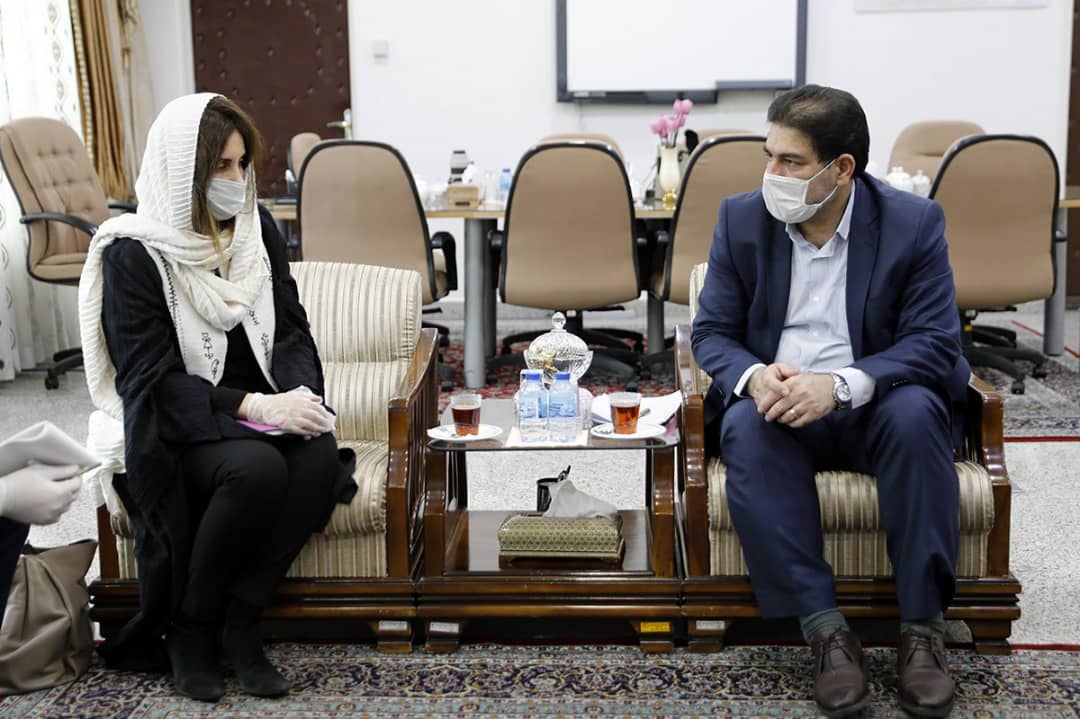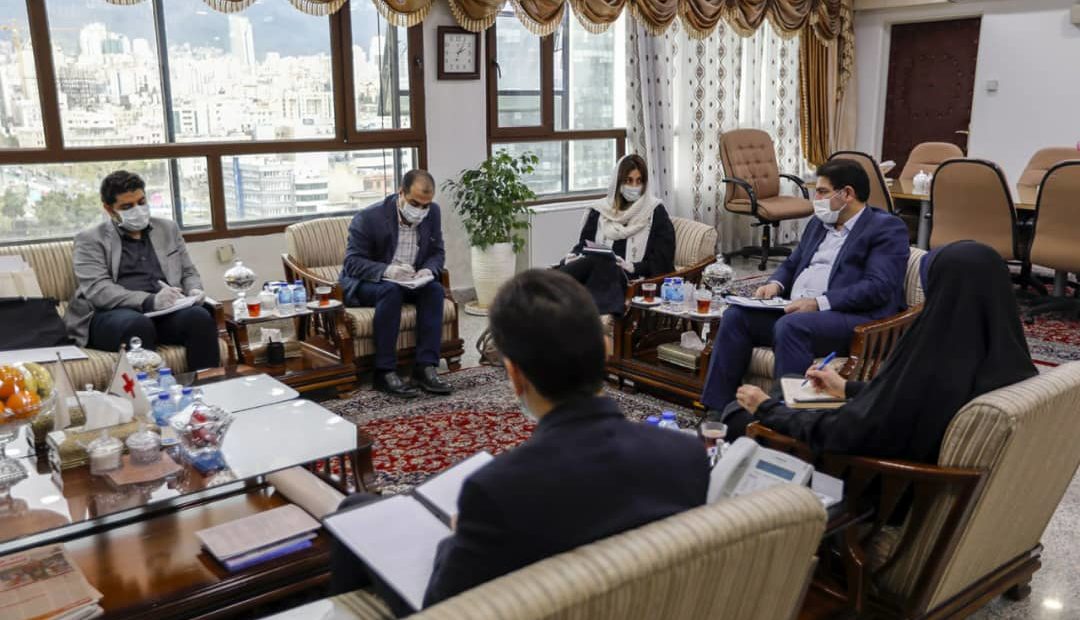The Head of Delegation of the the International Committee of the Red Cross (ICRC) in Tehran and Head of the Iranian Red Crescent Society (IRCS) met in the Peace Building of the IRCS in Tehran on Tuesday, 7 April 2020 and discussed the ICRC’s donation to the IRCS, facilitation of a financial channel for Iran to receive international humanitarian aid as well as the IRCS’s recent efforts to confront COVID-19.
Barbara Rizzoli, Head of the ICRC Delegation in Tehran, expressed her condolences over the deaths of Iranians, including medical staff and relief workers who are at the forefront of the fighting against the Coronavirus.
Emphasizing that Dr. Hemmati’s expertise and professional background in the national society in previous years will certainly add up to the IRCS in managing the virus crisis, she added: “The International Committee of the Red Cross has donated 500,000 Swiss francs to support the Iranian Red Crescent Society in its efforts to confront Coronavirus which its process as the first step in providing assistance in the event of a coronavirus outbreak is in progress.”
She added: “The Iranian Red Crescent Society’s request to have a financial channel for receiving humanitarian aid is a rational and basic request in order to help Iranian people, especially in situation of Coronavirus crisis, and the ICRC, in cooperation with the International Federation of Red Cross and Red Crescent Societies (IFRC), will make every effort from its Tehran delegation to Geneva Headquarters to respond to this request.”
“We understand the serious concerns about the impact of sanctions on the import of medicine and medical equipment into Iran,” said the Head of the ICRC Delegation in Tehran. “Basically, the medical supplies should be exempt from sanctions, but sometimes it is difficult to transfer the cost of medicines through bank channels. In this regard, the ICRC is negotiating not only in the regional level, but also in Geneva and with related organizations. And we are looking at all options and we will not miss any solutions,” she said.
She added that the ICRC considers two options with regard to supplying the medicines needed by Iran; The first is advocacy for Iranian Red Crescent Society’s request to facilitate the import of medicine, including to discuss with relevant authorities in Washington. Another way is to interact with Swiss companies to provide some of the special medicine needed by Iran, which, if deemed necessary by IRCS can be followed up through the Swiss financial channel. In this regard, steps have already been taken and the list of medicines which Iran has difficulties providing them was shared has been shared with ICRC Geneva to check possibility of providing them through companies with representation in Switzerland.
“In addition to financial support and efforts to activate the Swiss channel, we would like to cooperate with the IRCS in field of communication and sharing experience of other countries with regard to confronting Coronavirus,” expressed Head of ICRC in Tehran. “also, holding workshops on disability and inclusion of disability, community engagement and accountability, issues related to migration, restoring family links, mine risk education, etc. are among the topics that we would like to further our cooperation with the IRCS,” said she.
Head of the ICRC Delegation in Tehran continued: “the organization also has capacity and experience in forensic medicine and management of dead bodies in crises such as the outbreak of coronavirus which can be offered upon the interest of relevant organizations.”
Praising the officials and all IRCS staff for their special work in the front line of confronting Coronavirus, Ms. Rizzoli added: “We are closely following the IRCS operations such as information campaigns and supporting the needy, relief work and fever surveillance on roads, and other efforts to protect the health of Iranians during the corona outbreak and other incidents, inform the ICRC Headquarters in Geneva of such services.”

Ms. Barbara Rizzoli, Head of the Delegation of the International Committee of the Red Cross in Tehran and Dr. Karim Hemmati, Head of the Iranian Red Crescent Society
Dr. Karim Hemmati, Head of IRCS, pointed to the negative effects of the US unilateral sanctions on humanitarian action and said: before the outbreak of the corona virus, US sanctions put a lot of pressure on the Iranian people in field of treatment and health which with after the outbreak the negative effects and pressure of sanctions on the health of the Iranian people has multiplied.
“Currently, we are facing difficulties in receiving international humanitarian aid, whether financial or non-financial, importing medicine and the equipment needed to treat patients with corona, such as ventilators, and we expect Mr. Maurer, ICRC President, to support the IRCS by trying to create a financial channel for receiving international aid in the capacity as a humanitarian organization so that the Iranian people do not suffer more due to the U.S. sanctions.”
Head of the Iranian Red Crescent went on to describe performance of his organization during recent crises and said: in terms of confronting corona virus and in addition to its various activities in field of public awareness in this regard, the IRCS has set up screening posts as well as daily activity of 3400 person/ day of IRCS members in this campaign and etc. it will provide and distribute some 500 thousand hygiene kits specific to people with cancer and special disease. While, IRCS aid-workers have also been serving the people affected by flood in recent days in 25 provinces of the country.



Comments